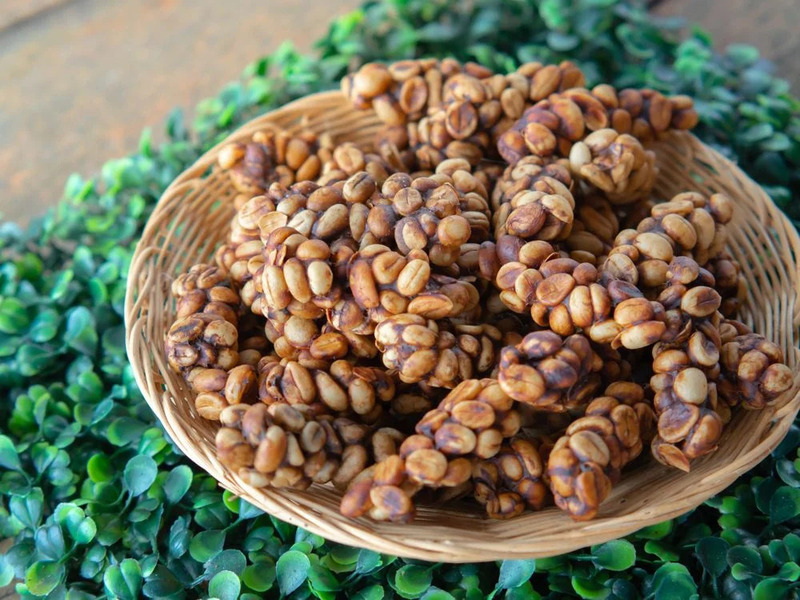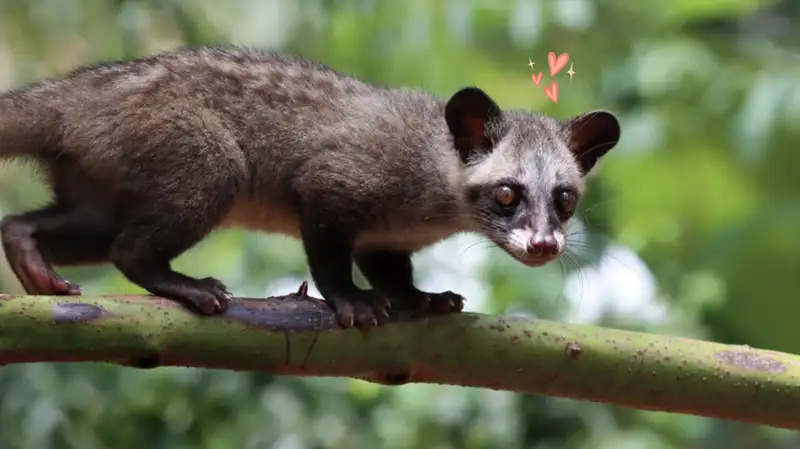PETA exposes cruelty in the civet coffee industry by unveiling the dark side of Bali’s luwak coffee.
The idea of drinking luwak coffee, crafted from the faeces of the Asian palm civet, might make you reconsider for an extra reason.
People for the Ethical Treatment of Animals (PETA) issued a warning to tourists in Bali after an investigator shared undercover footage of how civet cat excrement, containing partially digested coffee beans, is obtained.
A PETA Asia investigator visited civet coffee farms in Indonesia and the Philippines, two top producers of luwak coffee. Footage from these farms, some falsely advertising their coffee as “wild-sourced,” was obtained through undercover work by PETA investigators at a farm in Catur, Bali, according to Jason Baker, PETA’s Senior Vice President. It showed animals confined to cages covered in faeces, dirt, and decomposing coffee berries, many with open wounds.
“Tour guides in Bali often mislead tourists by claiming that luwak coffee is obtained from the faeces of wild civet cats. However, the reality is that most of this coffee is the product of keeping these animals captive in cruel conditions on farms,” Baker said.
PETA noted this is not the first of such findings. A previous investigation in 2022 discovered a herd of Asian palm civets held in captivity as they were fed a steady diet of coffee berries. Normally, coffee is made from the seeds or beans of the berries. In the wild, Asian palm civets eat various fruits, insects, and small mammals. But in captivity, they were fed bins full of coffee berries, leading to nutrient deficiencies.
The animals, native to South and Southeast Asia, are under threat in Indonesia due to increased luwak coffee production boosting the illegal wildlife trade, according to Wildlife Alliance. Despite being advertised as “wild-sourced,” farmers admitted that it is nearly impossible to produce exclusively wild-sourced civet coffee, knowingly mislabeling coffee from captive animals. Some even gave false labels to coffee from caged civets.
Baker emphasises that this issue extends beyond Bali, persisting throughout Indonesia and other countries serving luwak coffee.
“There’s much to enjoy about coffee in Indonesia, but the confinement, suffering, and sadness endured by civet cats for luwak coffee aren’t among them. Tourists be warned: stay away from civet coffee,” Baker advised.
Luwak coffee, made from civet faeces, is unique and pricey, ranging from $45 to $600 (Rp700,000 to Rp9.3 million) per pound, earning it the reputation as one of the world’s most expensive coffees.





